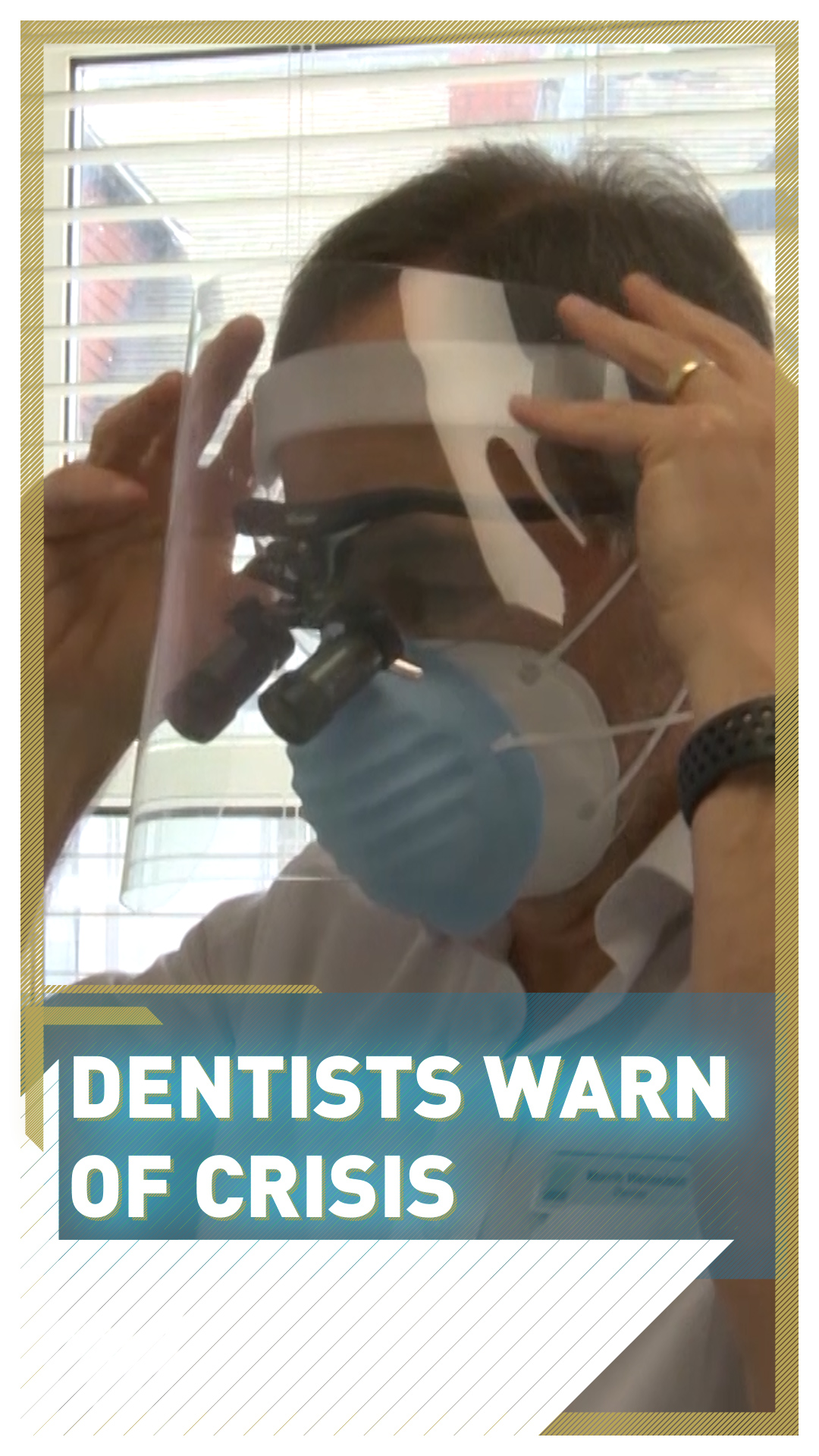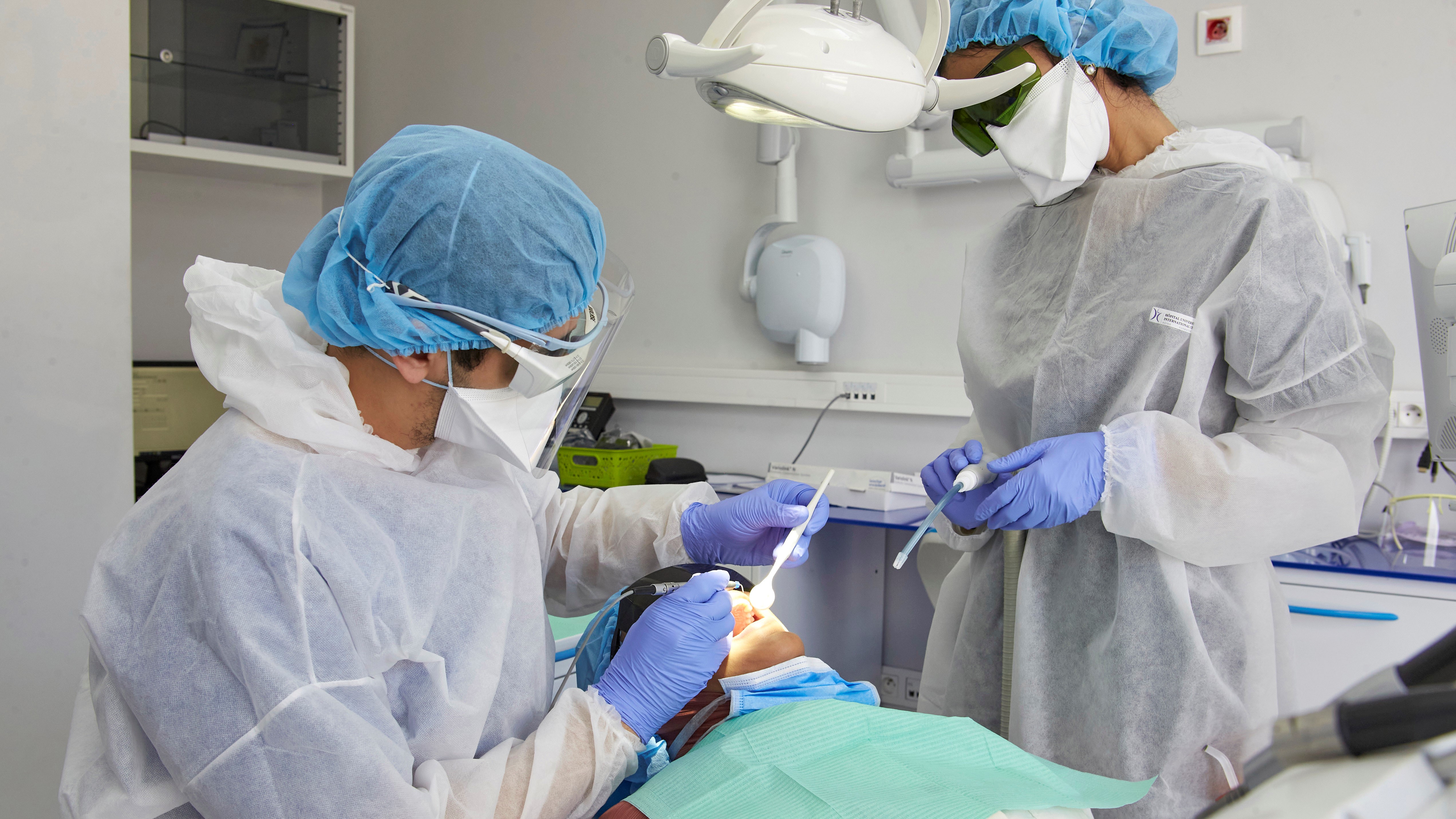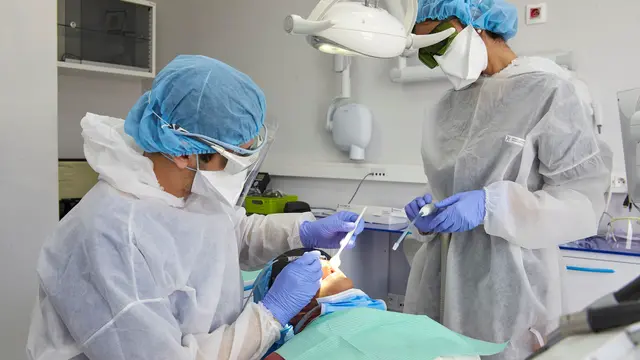02:28

As dental practices in England start to reopen, the emphasis is on personal protective equipment (PPE), and enhanced cleaning of rooms and equipment.
But some dentists in England are warning of a crisis in the industry. They claim measures designed to protect patients from COVID-19 are making it too difficult to do the job, and the new rules mean fewer patients can be seen.
Morris Weinstein has been a dentist for 40 years. At his practice in southwest London, he estimates he will only seen one-third of the number of patients he did pre-coronavirus.
With extra money needing to be spent on PPE, and less money coming in, the numbers just don't add up. He's not sure how many practices will survive.
He also questions the science.
Everything from fillings and root canal work to scaling and polishing can use equipment that creates an aerosol. The perceived danger is that the tiny particles increase the risk of viral transmission and can linger for a long time. For that reason, as well as enhanced protective equipment and cleaning, a fallow period has been introduced: to leave rooms empty for an hour between patients. But there is no consensus on the science behind the risk.

Dentists across the UK were able to reopen from Monday, but with some strict restrictions. /AP
Mr Weinstein told CGTN Europe that, although he is following the rules to the letter, it might all be too much, and too restrictive.
"Not all of what we are doing is backed up by science. We have to look at the last 30 years of records and there has not been a proliferation of viral infections from dental practices or dental treatment. The procedures that we take on a daily basis have been effective and we work in a sterile environment."
Many practices have reported issues of getting the correct PPE, or long waiting times to see experts who can help fit it properly.
Throughout the coronavirus lockdown in the UK, limited emergency dental procedures were still taking place, but English practices are now trying to work their way through a vast backlog of patients.
The British Dental Association is looking to Europe to learn from countries further along in the process that are now working under more normal conditions.
Eddie Crouch, vice chairman of the association, said: "Once we see some of the evidence coming through from other countries where that is happening, hopefully many of the restrictions and procedures we are putting in place ... could be lifted by evidence elsewhere around the world. Then, again, my colleagues would be more confident in their long-term future and the care for their patients."
There are also fears that if some private practices can't make their businesses work financially, it will put more pressure on NHS services.
Without a science-led easing of measures if it is safe to do so, some dentists warn they'll continue to struggle, with many patients unable to get appointments.
Video editing: David Bamford
 简体中文
简体中文








